WHO Sounds Alarm Over Euro 2020 As Covid Cases Soar
The World Health Organization (WHO) called Thursday for better monitoring of Euro 2020 football matches as Covid infections climb again in Europe, fuelled by the deadly Delta variant that is racing around the globe.
Hundreds of cases have been detected among spectators attending Euro games across the continent, with carriers of the Delta strain detected in Copenhagen, and infected Scots and Finns returning from London and Saint Petersburg respectively.
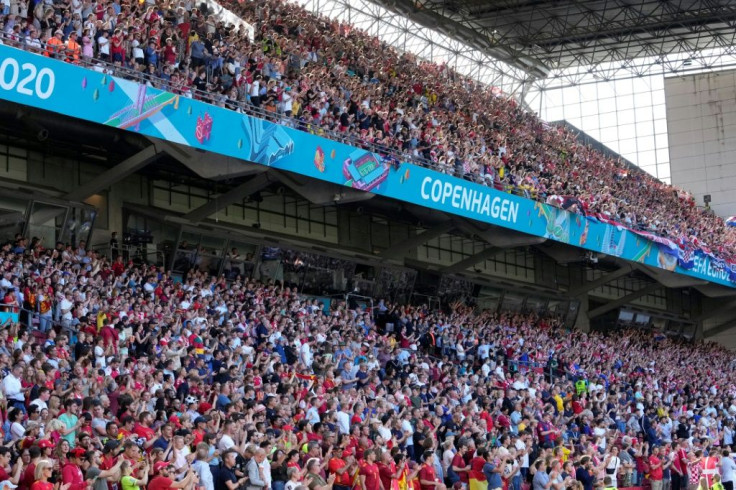
In a bid to boost protection, European football's governing body UEFA has cancelled all tickets sold to UK residents for England's quarter-final against Ukraine in Rome this weekend.
Russia posted record virus deaths for the third day running on Thursday, while in Britain -- where a Euro semi-final and the final take place next week -- infections are soaring despite a strong vaccination drive.
Portugal is struggling to contain the Delta variant too and on Thursday decided to re-impose a night curfew on 45 towns including the capital Lisbon from the weekend.
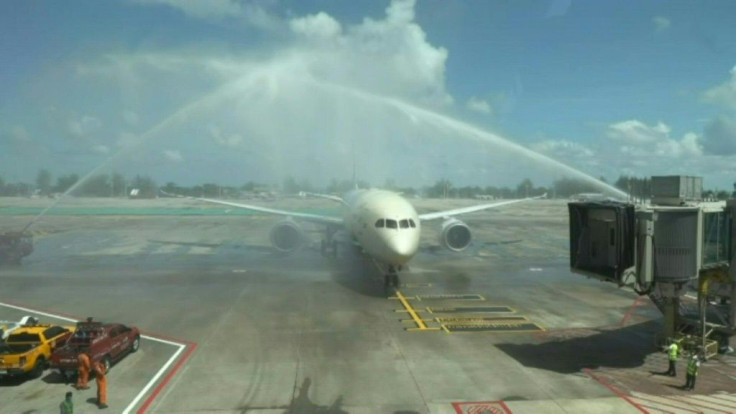
"There will be a new wave in the WHO European region unless we remain disciplined," the UN agency's Europe director Hans Kluge warned.
The region had seen a 10 percent rise in cases over the past week, "driven by increased mixing, travel, gatherings and easing of social restrictions".
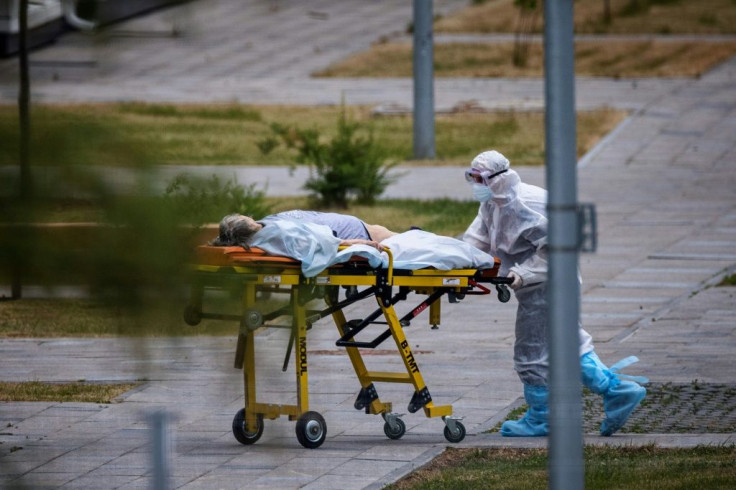
Asked about whether the Euro championship may be acting as a "super-spreader" event, Kluge replied: "I hope not... but this can't be excluded."
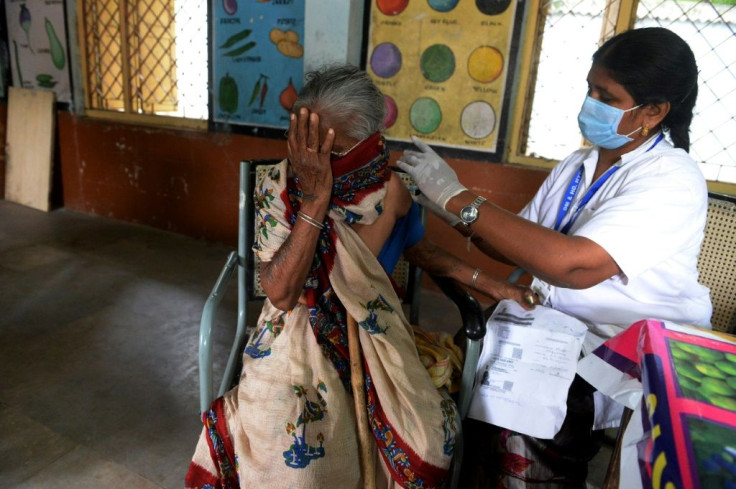
The coronavirus has killed more than 3.9 million people worldwide, according to an AFP tally.
On Thursday, the European Medicines Agency said two doses of Covid vaccine appears to provide protection against the Delta variant.
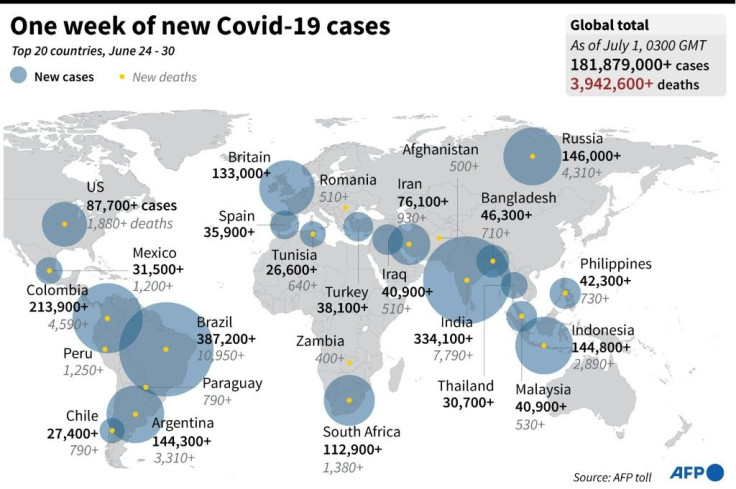
And Germany agreed recommending that everyone who received an AstraZeneca first dose switch to BioNTech-Pfizer or Moderna jabs for better protection against the coronavirus, including the Delta strain.
But while some three billion jabs have been administered worldwide, the global vaccine drive has highlighted stark inequalities between countries, with low-income nations having only given an average of one shot per 100 people.
Vaccine scepticism has also been an issue for many countries including Russia, prompting President Vladimir Putin to urge people on national television to get the jab.
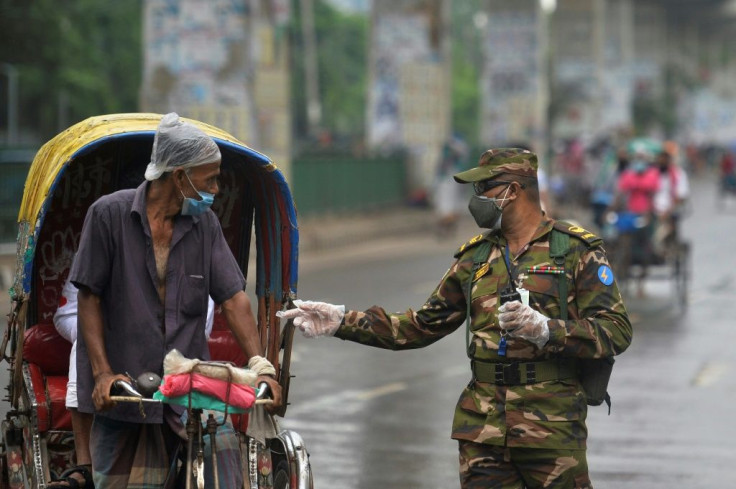
On Thursday, Russia reported 672 deaths over the past 24 hours, setting yet another pandemic high.
Saint Petersburg, which is due to host the Spain- Switzerland Euro 2020 quarter-final on Friday in front of thousands of spectators, saw the most deaths with 115.
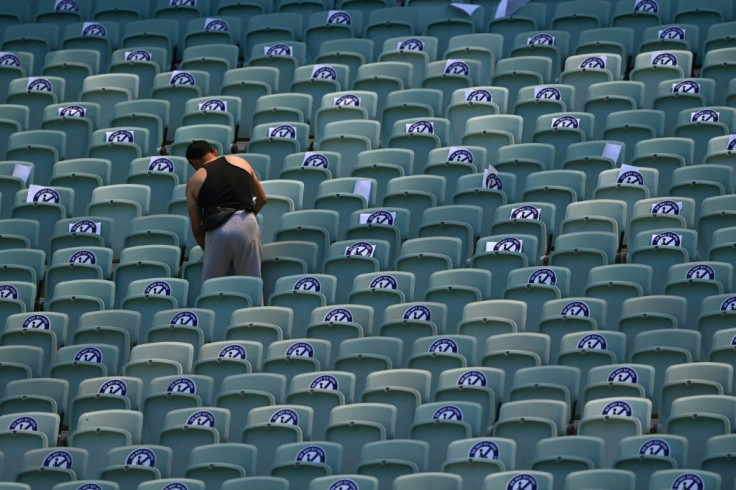
Authorities have introduced minimal restrictions beyond banning food sales at fan zones.
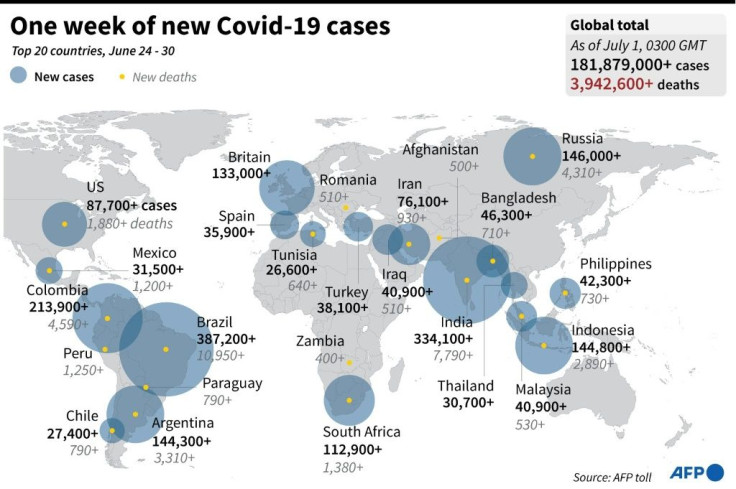
The worsening situation in Europe coincides with the launch of an EU-wide Covid certificate meant to ease travel for those living in the 27 member states.
The document -- essentially a QR code available on smartphones or on paper -- shows whether the bearer is vaccinated with one of the EU's approved jabs, whether they have recovered from an infection or recently tested negative.
But the surge in the Delta variant could put an abrupt end to this, triggering an "emergency brake" provision suspending the certificate's acceptance.
The Delta strain is driving the pandemic forward in Africa at record speeds, the WHO said on Thursday.
Infection numbers have increased in Africa for six weeks running, rising by a quarter week-on-week to almost 202,000 in the week that ended Sunday.
Deaths rose by 15 percent across 38 African countries to nearly 3,000 in the same period.
"The speed and scale of Africa's third wave is like nothing we've seen before," said Matshidiso Moeti, the WHO's regional director for Africa.
The head of DR Congo's fight against Covid-19 warned Thursday of "catastrophe" if the Delta variant keeps rapidly spreading in the country, saying hospitals were already overwhelmed and morgues overflowing.
Cases are also rising fast in many Asian countries.
Bangladesh locked down completely on Thursday, security forces patrolling the streets as 168 million people were confined to their homes except for emergencies and to buy essentials.
Some rural towns have recorded infection rates of 70 percent.
The healthcare system in Indonesia is also overwhelmed by a huge coronavirus wave, which has seen the government impose emergency restrictions from Saturday.
The curbs, lasting more than two weeks, cover the capital Jakarta, hard-hit Java and the holiday island Bali.
Malaysia too has announced tighter curbs in some parts of Kuala Lumpur and the neighbouring state of Selangor.
Despite the resurgence of the virus and warnings to go slow, many nations are pressing ahead with plans to open up their economies and revive sectors badly hit by the pandemic, especially tourism.
Thailand kicked off its "Phuket sandbox" project on Thursday, under which vaccinated international travellers can visit the holiday hotspot without needing to quarantine.
© Copyright AFP 2024. All rights reserved.





















